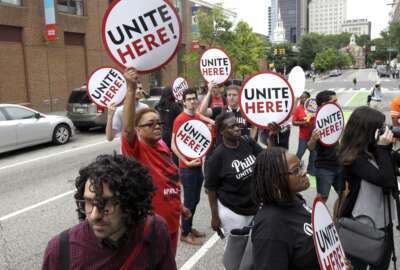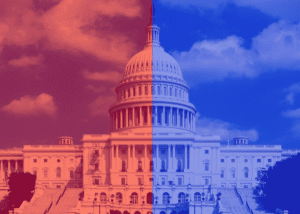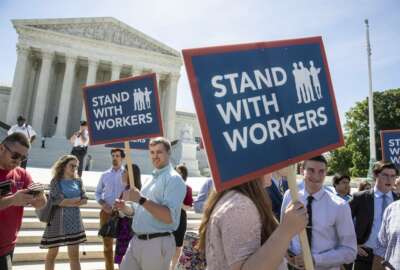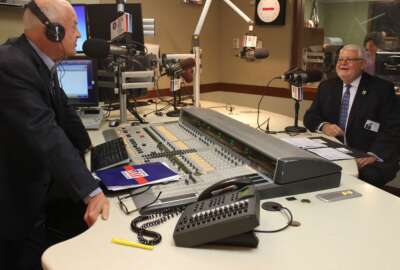
Unions play political cards
Back in less partisan times, federal and postal unions or at least their elected leaders leaned Democratic and but close ties with key Republicans in Congress, ...
 Back in the day, in less partisan times, federal and postal unions, or at least their elected leaders, leaned Democratic and kept close ties with key Republicans in Congress. They also remained familiar with staffers whose committees dealt with civil service matters.
Back in the day, in less partisan times, federal and postal unions, or at least their elected leaders, leaned Democratic and kept close ties with key Republicans in Congress. They also remained familiar with staffers whose committees dealt with civil service matters.
Union leaders and lobbyists frequently entertained or socialized members of both political parties. When Richard Nixon made his run for a second term, the presidents of the American Federation of Government Employees and the National Association of Letter Carriers cut personal side deals with the White House. In return for the president’s support of improvements for workers AFGE President John Griner and NALC President James Rademacher agreed to publicly to endorse him as individuals, but not on behalf of their unions.
The agreement was leaked to the press, which welcomed what was then a fairly significant political story. This of course was before Watergate and the 24/7 cable news cycle.
For many public unions, the bipartisan era ended around the time Republican House Whip Tom DeLay of Texas lashed out at “jack-booted thugs,” aka officers of the former Immigration and Naturalization Service. They were acting on orders from the Clinton White House to remove 6-year old Elian Gonzalez from his Miami guardian to relatives in Cuba. Whether the action was right, wrong, political or not, career feds took a lot of the heat for simply doing their jobs.
Several years later two federal officers, Capitol Police Officer Jacob Chestnut and Detective John Gibson were killed in a Capitol Hill shootout. They were protecting DeLay and Republican House Speaker Dennis Hastert of Illinois from a gunman.
The AFGE, the largest federal union, is all-in for the Democrats. In the past it and other unions have endorsed presidential, though mostly Democratic, candidates and obvious choices such as Maryland’s Democratic senators, Rep. Steny Hoyer and Rep. Gerry Connolly of Virginia. But this year the union broadened its support to include lesser-known national congressional candidates like Xochiti Torres Small in New Mexico and Mike Bost of Illinois. The union is also endorsing state-level politicians such as Keith Ellison, who is currently a member of the House but is running for the job of Attorney General of Minnesota.
The complete list of all the AFGE endorsed candidates can be found here, but remember not to download them on a government computer. That could be a violation of the “no politics” Hatch Act.
Unions seem to have concluded that as far as the interests of their members are concerned there just aren’t any good elected Republicans out there — at least not good enough to get kind words, political action committee donations and campaign volunteers from the union ranks.
The problem for many GOP incumbents is that while most federal workers don’t belong to or pay dues to unions they are represented by them, including communities with a military base, an IRS service center, a VA hospital, postal processing center or a federal prison. If they wanted to, feds could control many if not most congressional race outcomes.
Nearly Useless Factoid
By Amelia Brust
Nancy Lee Carlson won the Apollo 11 bag used by Neil Armstrong to collect moon dust for NASA in a lawsuit when the agency claimed it was their property. Carlson had purchased the bag for $995 at a government auction and sent it to NASA to be authenticated. The agency refused to return it so Carlson took them to court in Houston. Last year the judge awarded Carlson the bag, which she eventually sold for $1.8 million at Sotheby’s.
Source: Mental Floss
Copyright © 2024 Federal News Network. All rights reserved. This website is not intended for users located within the European Economic Area.
Mike Causey is senior correspondent for Federal News Network and writes his daily Federal Report column on federal employees’ pay, benefits and retirement.
Follow @mcauseyWFED





